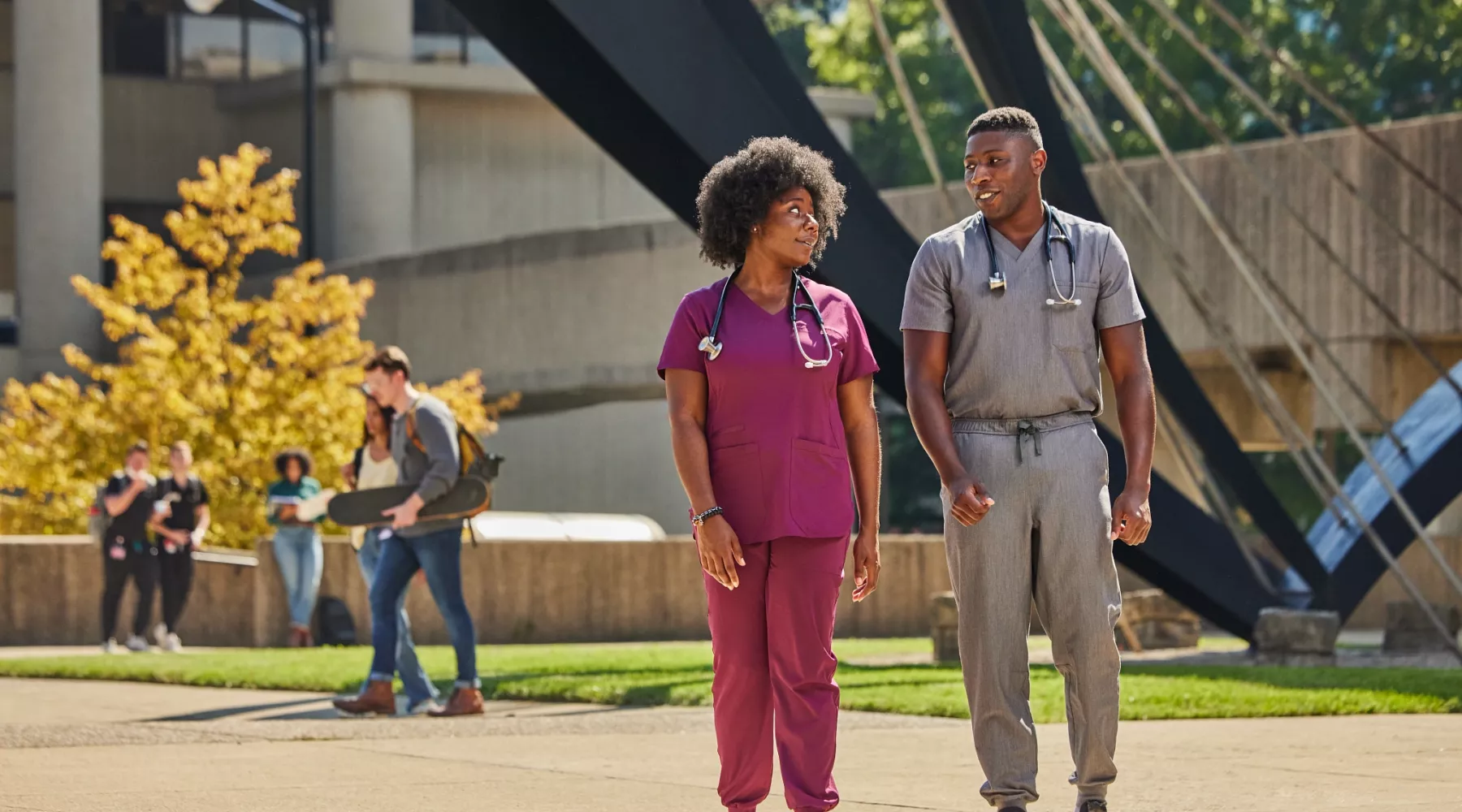
Pre-Health Advising
Sidebar
Step 1 - Decide if pre-health is right for you
The UofL Career Development Center has online assessments (the Cards Career Navigator), or you can make an appointment to meet with a career counselor. These assessments can help you choose your career based on your strengths and interests. They can also connect you to internship, shadowing, and part-time employment opportunities so you can get a sense of what different careers in the healthcare field are like.
Additional websites that you may choose to explore: explorehealthcareers.org
Step 2 - Choosing a Major
One common misconception is that "pre-health" is a major. While some schools do offer a major called pre-health (or pre-med), you can major in anything while preparing for professional school admission. As a pre-health student, you will take a set of prerequisites for the program you wish to pursue, in addition to your major courses. Some majors, such as Biology, Psychology (Natural Science Concentration) and Chemistry, and Public Health include many of the pre-requisites within degree requirements. For some majors, however, you may take a number of your prerequisites as electives.
The most important factor in choosing a major is your interest in the subject. First, professional programs have high expectations and are extremely competitive. Your academic success is an extremely important factor from the start. Professional and graduate programs want to see that you are successful not only in pre-requisite coursework, but in your academics more generally, and choosing a major that interests you will go a long way in contributing to your success. Additionally, because of the competitive nature of these professional programs, it's a good idea to have a "Plan B." It's a good idea to pursue a major in a field in which you would like to work. If you're uncertain what major to choose, talk with your academic advisor.
View a list of all academic majors at UofL in the Undergraduate Catalog.
Step 3 - Determine which health career you wish to pursue and research graduate options
Click on the hyperlinks for more information.
| Health Occupation | Degree | Test for Application | Apply via | Accrediting Agency |
| Audiology | AuD | GRE | School Application | Council on Academic Accreditation in Audiology and Speech-Language Pathology |
| Dentistry | DDS/DMD | DAT | ADEA AADSAS | CODA |
| Medicine | MD | MCAT | AMCAS | AAMC |
| Medicine | OD | MCAT | AACO MAS | American Association of Colleges of Osteopathic Medicine (AACOM) |
| Occupational Therapy | M. OT or DOT | GRE | School Application | AOTA's Accreditation Council for Occupational Therapy Education |
| Optometry | OD | OAT | Optom CAS | ASCO |
| Pharmacy | PharmD | PCAT | PharmCAS | ACPE |
| Physical Therapy | DPT | GRE | PTCAS | APTA |
| Physician's Assistant | Master's - PA | GRE | CASPA | Accreditation Review Commission on Education for the Physician Assistant (ARC-PA) |
| Podiatry | DPM | MCAT | AACPMAS | American Association of Colleges of Podiatric Medicine (AACPM) |
| Public Health | Bachelors, Masters, Doctorate | GRE | SOPHAS or School website | Council on Education for Public Health |
| Speech Therapy | Masters in SLP | GRE | School Application | Council on Academic Accreditation in Audiology and Speech-Language Pathology |
| Veterinary Medicine | DVM | GRE | VMCAS | AVMA |
Step 4 - Graduate School options
In your research on programs of interest, you will want to make note the following:
- Prerequisite coursework required for application as this may vary from school to school
- Required test for admission
- Number of recommendation letters required
- Does the school utilize a common application system or the standard graduate school application from the institution?
- Review student profile for students admitted to the program. What is the averaged GPA of students admitted? How many seats are available?

